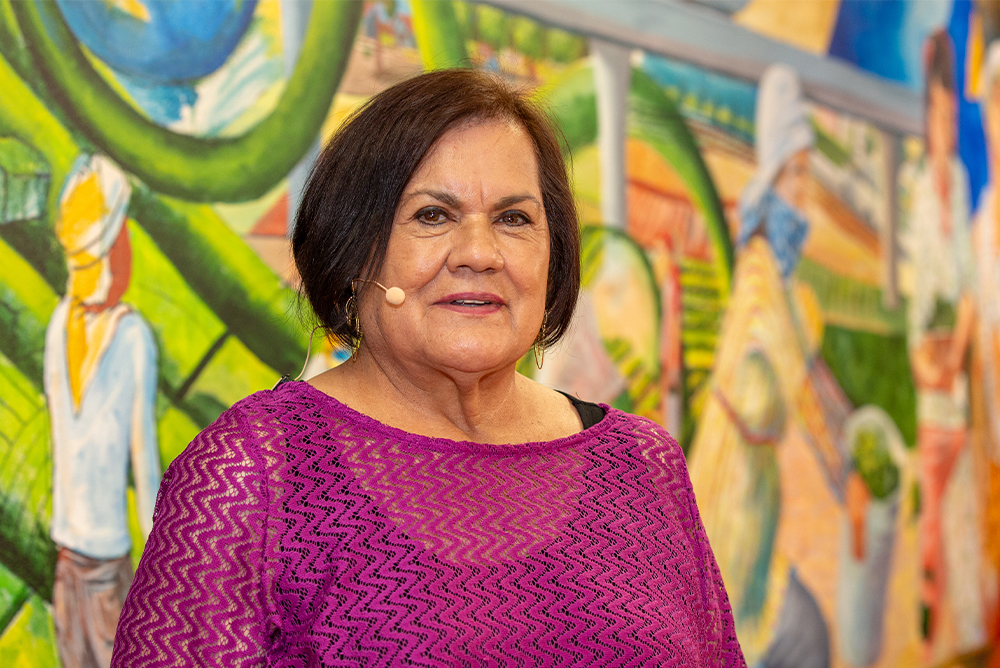
Photo by Lar Yang | Yang Design.
Martha Valladarez is an in-home supportive services provider. She was one of the first female letter carriers and female shop stewards in Fresno, California. Her youngest daughter has Down Syndrome, which led her to join the care providers’ union, SEIU Local 2015, for which she is currently the regional vice president. Before speaking on a panel at a Zócalo event, presented in partnership with The James Irvine Foundation—“What Is a Good Job Now? In Health Care?”—she chatted in the green room about feeling lucky, talking to children with disabilities, and delivering mail at Christmas.
What, if anything, do you miss most about being a letter carrier?
All the friends that you’d meet on the route. I especially miss Christmas as a letter carrier—they used to give me cookies and homemade bread, dish towels, and money. And they would all be wrapped, and I would put them under the tree. My kids loved those gifts.
Zócalo is turning 20. What is some advice you wish you’d received in your 20s?
Don’t get married. Or at least don’t get married too young.
What was your most memorable birthday, and why?
When I turned 13. I was raised in foster homes, and that was the first birthday I got to celebrate. After being in the same foster home for a while, I got a birthday cake for the first time. It meant a lot to me.
What’s the lowest wage you ever received?
$2 an hour as a waitress in high school.
What’s the hardest job you ever had?
Working out in the fields picking grapes.
Your younger daughter has Down Syndrome. What’s the biggest misconception people have about Down Syndrome?
People often look at Down Syndrome kids; they are stared at and they are laughed at. [Often people] go up to a child, and say how beautiful your child is. But that doesn’t happen very much with kids with Down Syndrome. So when we see a parent and a child with special needs—this happened when we were at Macy’s recently—we go up to them, and say, “Your child is beautiful.”
What do you do to rest and recharge?
When I want to be calm, I sit down, and I always think about how lucky I am, and the wonderful family I have. And I thank God that my kids all have a college degree.
What was the last thing that inspired you?
When I helped [an in-home supportive services caregiver] who was getting only 44 hours—that meant he was getting only paid for 44 hours, but was working more. And with help, he ended up getting 283 hours.



